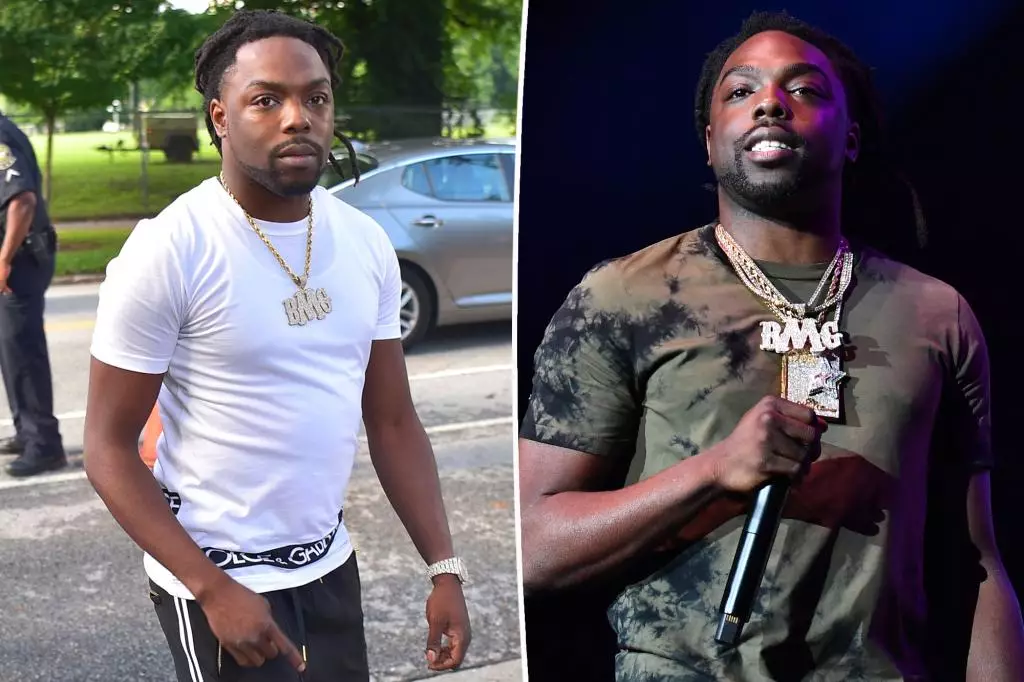The unexpected death of Atlanta rapper Young Scooter, born Kenneth Edward Bailey, has sent shockwaves through the hip-hop community. At just 39 years old, he was tragically pronounced dead due to a severe leg injury sustained while trying to escape from law enforcement officials on what was supposed to be a day of celebration—his birthday. The circumstances surrounding his passing highlight the dangerous intersection of fame, legal troubles, and a culture that often glorifies criminality.
The Atlanta Police Department’s account reveals a distressing sequence of events. Responding to a “dispute with a weapon,” officers encountered a scene fraught with tension—a possible domestic dispute that escalated to the presence of gunfire. It is disheartening to consider that a birthday, often a day of joy and reflection, can turn into a tragedy when surrounded by violent encounters.
The Role of Fame and Its Consequences
Young Scooter was no stranger to the music industry, having collaborated with prominent figures such as Future and Gucci Mane. As part of Future’s Freebandz record label, Scooter enjoyed a modicum of success that many aspiring artists can only dream of. Yet, the rapper’s life also mirrored the darker narratives often explored in his songs, where themes of survival and desperation intermingle. Despite his musical triumphs, the shadows of his lifestyle may have contributed to the decisions he made in a fateful moment.
Fleeing from the police while carrying the weight of celebrity can feel like a high-stakes gamble, but it invariably comes with dire consequences. Legal repercussions and the potential loss of life transform what might be considered a moment of rashness into a tragic story that echoes through an entire community. In Scooter’s case, it appears that the very essence of his artistic persona may have compelled him into a perilous situation from which there was no return.
Reflecting on the Legacy
Beyond the sensational details of his death lies a more profound reflection on Young Scooter’s legacy. His mixtapes, such as “Street Lottery” and “Free Bricks 2,” served as a testament to his talent and contributed to the broader hip-hop narrative that continues to evolve. They encapsulate not only the struggles faced by artists striving for success but also raise questions about the influences that lead them down perilous paths.
Even in a world that often celebrates rebellion, Young Scooter’s story is a cautionary tale about the risks that come with a life filled with bravado. Fame can act as a double-edged sword, where the light of recognition is dimmed by shadows of past choices. The incident also calls for a critical examination of societal structures that perpetuate cycles of violence and desperation, particularly in urban communities.
In contemplating the loss of talents like Young Scooter, it becomes imperative for fans and industry peers to advocate for safer spaces and support systems within the music community. His untimely death should not merely add to the grim statistics but instead inspire a movement towards preventive measures, fostering environments that can both protect and nurture new voices in the industry.
